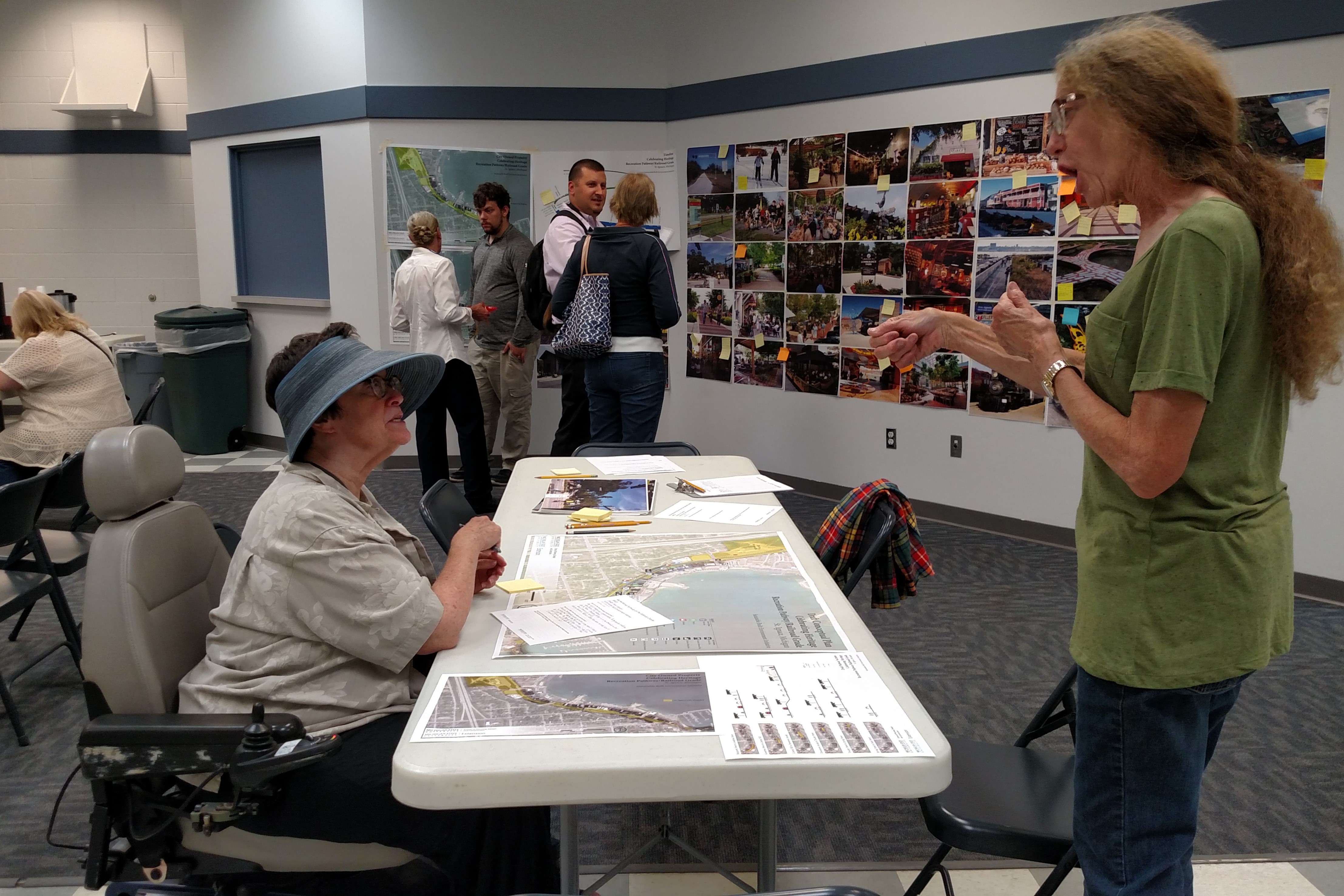Climate and health adaptation planning technical assistance available to Michigan communities
Learn more about the opportunity to participate in a community engagement process for the development of a consensus vision, planning recommendations, and designs to guide adaptations addressing climate impacts on public health.

The Michigan Department of Health and Human Services (MDHHS) invites applications for the Climate and Health Adaptation Planning technical assistance opportunity. This initiative is designed to empower two Michigan communities to effectively address and mitigate local health-related climate concerns. Based on the principles outlined in the Climate and Health Adaptation Planning Guide for Michigan Communities, the technical assistance offers a community engagement and graphic visioning process that provides communities with a consensus vision, planning recommendations, and a set of before/after images to guide adaptations that address climate impacts on public health.
The MDHHS Michigan Climate and Health Adaptation Program (MICHAP), Michigan State University (MSU) School of Planning, Design and Construction (SPDC), and MSU Extension have partnered since 2017 to advance climate and health adaptation statewide. The Climate and Health Adaptation Planning technical assistance opportunity builds on more than 20 years of community planning and design technical assistance offered through the MSU SPDC. The partnership allows for an integrated approach to addressing climate and health problems through the diverse expertise found within MICHAP and SPDC, including public health, construction management, interior design, landscape architecture, and urban and regional planning, along with MSU Extension’s major programming areas and their respective educators.

Objectives of the technical assistance opportunity include:
- Helping communities identify local climate and health concerns and vulnerabilities;
- Facilitating the development of adaptation planning and design ideas for local climate and health issues and opportunities;
- Building consensus and generating ideas to address challenging climate and health concerns in the community;
- Acting as a bridge between communities and consulting planning and design professionals; and
- Building relationships between communities and MSU faculty, MSU Extension educators, and students for future collaboration.
Project types
The Climate and Health Adaptation Planning technical assistance opportunity seeks projects that integrate planning and design elements within a climate and health adaptation framework. Eligible projects must directly address specific climate-related challenges, such as rising temperatures, flooding, drought, poor air quality, ticks, and other climate-related hazards, while also focusing on health and vulnerable populations within the community.
Examples could include improved landscape management or physical design interventions, including innovative green infrastructure techniques, that enhance the resilience of downtown streetscapes, parks, bikeways and trails, open space systems, parking lots, neighborhoods or industrial/commercial areas, while simultaneously addressing a locally identified climate-health concern. The scale of the project can vary from a single parcel to a subarea plan. Projects that include a focus on climate-vulnerable groups within the community are preferred.
Who qualifies
Michigan cities, villages, townships, counties, and tribal nations are eligible to apply. Community-based organizations, conservation districts, and other local entities are welcome to apply as a secondary applicant in collaboration with a city, village, township, county, or tribal nation. Regardless of the applicant’s organization, all projects must focus on a specific site location, which can vary from a single parcel to a subarea. Communities that meet one or more of the U.S. Environmental Protection Agency’s (EPA) Environmental Justice Screening and Mapping Tool (EJScreen) indicators will be given priority consideration.
How to apply
Interested communities must complete an application. Please note, responses to application questions must demonstrate readiness to further existing community conversations or ongoing work related to climate adaptation.
Office hours are available upon request for communities needing assistance in preparing an application.
Applications must be submitted by Sunday, December 1, 2024, at 11:59 p.m.
For more background information, please go to www.michigan.gov/egle/outreach/catalyst-communities/webinars, click on “Climate” and view the three-part webinar series “Climate and Health Adaptation Planning: A Health in All Policies Approach,” or contact Brad Neumann, senior Extension educator at neuman36@msu.edu or (906) 315-2661, to learn more.



 Print
Print Email
Email



